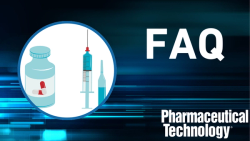
OR WAIT null SECS
Hospitals Back Generic Drug Production Venture
More than 120 healthcare organizations plan to bring competition to generic drug market.
In an effort to ensure access to certain widely used drugs at affordable prices, a group of leading hospitals and health systems have established a not-for-profit organization to produce therapies in short supply or subject to unusual price increases. Industry veteran Martin van Trieste, former chief quality officer for Amgen, was named CEO of Civica Rx, lending credibility to this much-anticipated plan.
An initial proposal for a provider-based system to counter rocketing drug prices and serious shortages was announced in January 2018. Since then it has attracted more than 120 health organizations, including Catholic Health Initiatives, HCA Healthcare, Intermountain Healthcare, Mayo Clinic, and Providence St. Joseph Health; these and others together represent more than one-third of the nation’s hospitals. The venture has received $30 million in funding from a number of foundations and investors and aims to raise $200 million to support the operation.
The plan is to initially produce 14 hospital-administered generic drugs through contract manufacturers or generic drug makers with FDA-approved facilities, with the aim of bringing an initial product to market by early 2019. Van Trieste, who had recently retired and is heading the venture with no salary, expects the venture to bring “much needed competition to the generic drug market.”
An unknown is how current manufacturers will respond to this operation, perhaps by reducing prices or boosting production. Many short-supply therapies are sterile injectables, which raise production challenges. But hospitals anticipate that access to more reliable supplies will be important in reducing the time and effort now needed to track supplies, seek out alternatives, and advise health workers on the need to vary prescribing and drug administration practices.


